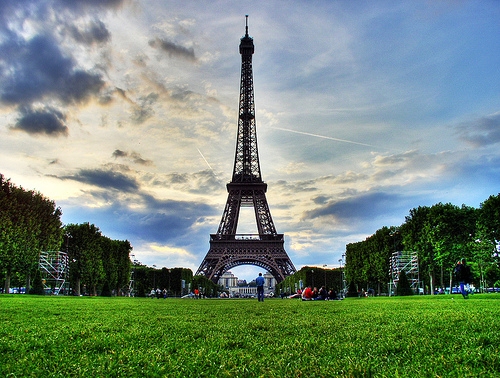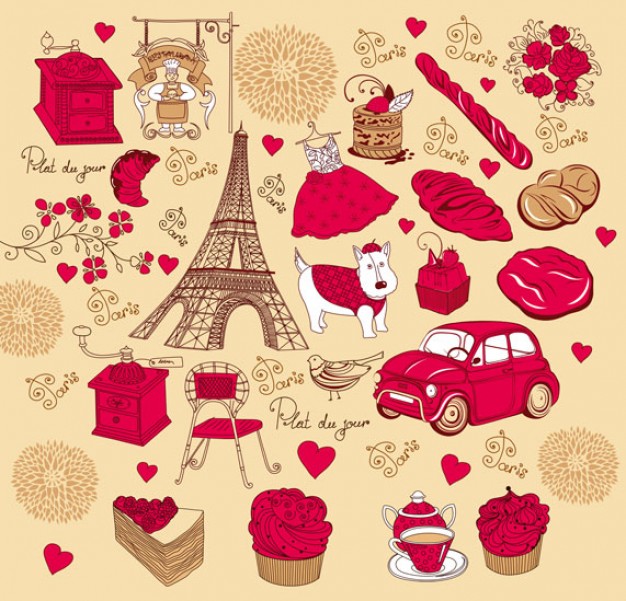8 Phrases to Learn Before You Travel to France
 Not only will French skills enhance your travel experiences in France and make getting around, eating, and drinking easier, but you will also be able to speak some of what is considered to be one of the most romantic languages across the world. Despite some differences between the language variations, it will also come in handy if you visit French speaking areas of Canada.
Not only will French skills enhance your travel experiences in France and make getting around, eating, and drinking easier, but you will also be able to speak some of what is considered to be one of the most romantic languages across the world. Despite some differences between the language variations, it will also come in handy if you visit French speaking areas of Canada.
Remember that nouns have a gender in French – some are masculine and prefixed with le, whereas others are feminine and prefixed with la. Another key point to remember is the form of address when speaking to another person. Vous and tu are both used for “you”; vous is formal and tu is familiar.
To help you out, here are some top eight phrases to learn before you pack your bags and head of to one of Europe’s jewels:
1. Hello
Being able to say hello is both polite and will also often guarantee a much friendlier service in a shop or restaurant. Bonjour is hello, and the les s formal hi, used within close circles, is salut. Part of the French culture is to greet assistants upon entering a shop. If the member of staff is female, a cheery bonjour madame is a perfect greeting. If they are male, you can say bonjour monsieur.
2. Thank You
To show your gratitude and thanks, merci will convey your meaning well. Merci beaucoup means thanks a lot and shows an even deeper gratitude.
3. Where are the toilets?
Imagine being desperate for the toilet and having no idea where to find one … awful! Even if you cannot understand the spoken reply, many people will guide you in the right direction. Ou sont les toilettes will be very useful if you are searching for the nearest restroom. You can use ou sont les … when you are looking for anything in the plural, and ou est le / la …. when looking for something in the singular.
4. Do You Speak English?
When you are really in a tricky spot, it can really help to be able to get assistance from someone in your own language. You can ask parlez vous Anglais to try and find an English speaker. If the answer is non, you need to ask elsewhere. If the person can, they will usually answer you in English!
5. Goodbye
Au revoir is the standard way to bid somebody goodbye. In less formal situations, and where you will see the person again in a short period of time, a tout a l’heure means 'see you soon'. A bientot also means 'see you later', and is often used on the telephone. It is a common misconception that adieu is a good way to say goodbye; 'adieu' is more suited for a permanent farewell than for a regular goodbye.
6. How Much Is It?
When buying something, it always helps to know how much it is! You can ask c’est combien?, which means 'how much is it?' Adding s’il vous plait is polite – so c’est combien s’il vous plait. It helps to point to the item you are asking about. If you look confused by the price, the vendor will often write the figure or punch it into a calculator to throw you a line.
7. I Don’t Understand
If you are in a bit of a pickle, rather than mumbling on you can tell the speaker that you just don’t understand. They may speak slower, they might paraphrase, perhaps they will find someone who can speak to you in English, or it is possible that you could find yourself in a game of charades! Whatever happens though, being able to say you cannot understand can be a great help at times. Je ne comprends pas tells someone you don’t understand.
8. Would you take my picture?
Everyone likes to have the perfect holiday snaps as a reminder of the top spots they visited. If you find yourself in a fantastic place and want your picture taken, you can ask prendriez-vous ma photo, s'il vous plait? Of course, if you want to be with your partner, a friend, the kids etc, people will understand your meaning, but to be correct, you can say prendriez-vous notre photo s’il vous plait to mean 'our photo' instead of 'my photo'.
As an extra, with wine being a huge part of the French culture it helps to know your white from your red and your rosé. White wine is vin blanc, red wine is vin rouge, and rosé wine is vin rosé, where rosé sounds like 'rosay'.
Learn even more of the local language and speak with confidence before you head off for a fabulous time travelling around France.



